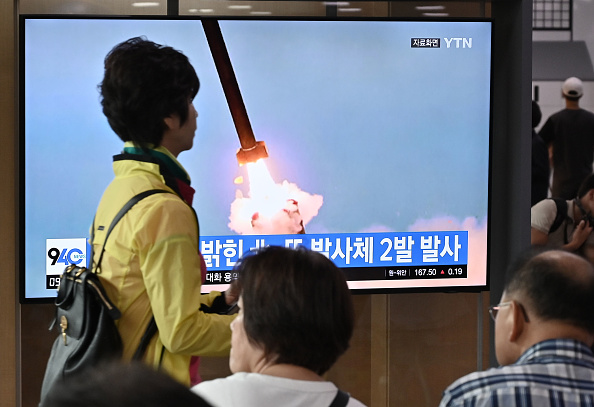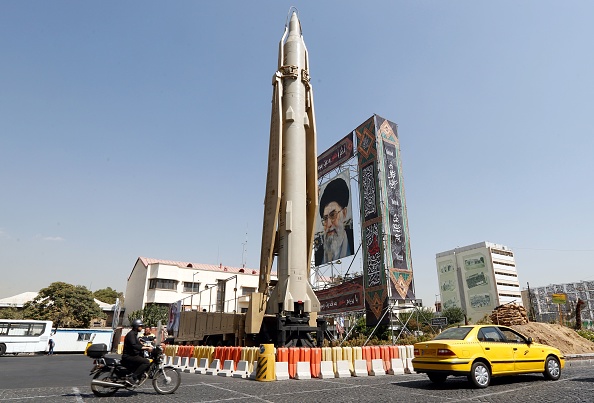Last month, the United States withdrew from a landmark missile treaty with Russia. Another crucial arms control treaty, the New START agreement, is set to expire in early 2021. China and several other countries with nuclear weapons, unconstrained by any treaty commitments, have been building up their arsenals. But as the global arms control architecture has frayed and weapons stockpiles grow, one pillar holds steady: only a handful of countries worldwide have nuclear weapons, and the risk of new entrants into the club, most experts agree, is relatively low.
On balance, the United States’ nonproliferation efforts have been remarkably successful. No country that does not already have nuclear weapons seems to be developing them, although some, such as Iran, have the capabilities to do so. Most countries have opted not to build their own warheads in part because international treaties have erected legal, political, and normative barriers to the bomb and in part because the United States has made extensive security commitments to its allies around the world. Washington and its partners have also established that those who get caught proliferating face tough penalties.
But although nuclear proliferation has remained mostly in check so far, there is reason to doubt whether it will do so indefinitely. The international order and the United States’ role within it are changing. The treaties, security commitments, and sources of leverage on which nonproliferation rests may not survive these shifts. Washington shouldn’t be surprised if the nuclear landscape—and its ability to manage it—soon changes for the worse.
THE WRITING ON THE WALL
Today’s consensus on preventing the spread of nuclear weapons did not always exist. In the early years of the Cold War, some in the United States argued that proliferation was inevitable and that having more nuclear-armed states on Washington’s side could actually be an advantage. But the winds shifted by the mid-1960s, and Washington and Moscow both realized the risks of open-ended proliferation. By 1970, both sides backed the Treaty on the Non-Proliferation of Nuclear Weapons, under which countries that did not already have nuclear weapons pledged not to seek them in the future. The treaty effectively forced fence sitters to make a decision, and the overwhelming majority of states decided against nuclear weapons.
Over time, governments built additional tools to close any loopholes. The Nuclear Suppliers Group, which comprises nearly 50 states, has successfully tightened controls on exports of sensitive technologies that could be used for proliferation. And several incidents in the 1990s, including the discovery of Iraq’s hidden nuclear program in 1991, prompted states to expand the inspection powers of the International Atomic Energy Agency—powers that today make it easier for the agency to inspect Iran’s nuclear program.
Few U.S. allies have developed nuclear weapons in large part because they had the United States and its vast arsenal on their side. Washington, in turn, has used those countries’ dependence on its military might—and on other forms of U.S. military, economic, and technical assistance—as leverage if one of them nonetheless evinced nuclear ambitions of its own. That leverage was critical to preventing Taiwan, South Korea, and Germany from going nuclear.
Would-be proliferators are well aware that, especially since the end of the Cold War, the United States has had the ability to inflict devastating economic harm on countries that do not abstain from weapons development. Washington has in the past levied painful domestic and UN-imposed economic sanctions against Iraq, Libya, North Korea, and Iran to convince their leaders that the cost of their nuclear programs outweighed the benefits. In the cases of Libya and Iran, the resulting isolation played no small part in pushing them to limit their programs or scrap them altogether in exchange for sanctions relief.
Because nonproliferation has depended so heavily on U.S. leadership, alliances, and enforcement, it has come under serious pressure during the tumultuous administration of President Donald Trump. That pressure, combined with rising global threats—Russia, China, North Korea, and now even the specter of an unconstrained Iran—has produced a combustible mix of proliferation pressures among friendly countries.
To be sure, U.S. allies have always worried that Washington might abandon them, but Trump’s actions put him in a class of his own. He has made clear that he views the U.S. alliance system as a liability, not an asset, and he has repeatedly questioned whether the United States would honor its defense commitments if allies were attacked. The U.S. president has tried to strong-arm countries that host U.S. troops into coughing up more money to “compensate” the United States for providing security, and he has routinely praised the likes of Russian President Vladimir Putin and North Korean dictator Kim Jong Un—leaders of the very regimes that U.S. alliances are intended to defend against.

Whether or not Trump’s hostility to the U.S.-led world order outlasts his presidency, some of its attendant characteristics are likely to live on and perhaps even grow in American politics. These include the devaluation of free trade, a skepticism of international institutions, and a transactional approach to alliances. Future leaders in Washington who may seek to sustain the current international system and the United States’ position within it will have to contend with the rise of rival powers and the burden of fiscal requirements and political gridlock at home.
None of these trends bode well for nonproliferation. The barriers that the United States has helped erect to thwart the spread of nuclear weapons are strong but not self-sustaining. The United States cannot turn away from them and expect to keep proliferation contained. In fact, doubts about the United States’ commitment have driven allies and partners to seek nuclear weapons in the past: President Richard Nixon’s policy that allies should do more to shoulder the burden of their own defense and his efforts to normalize relations with communist China helped stimulate South Korean and Taiwanese nuclear ambitions.
Today, U.S. allies have so far refrained from trying to build the bomb. There has been some recent debate in this direction in Germany, and public support for a nuclear weapons program remains high in South Korea, but there are no widespread calls to join the nuclear club in either country. It is hard to know, however, whether governments may be having more serious discussions behind closed doors. Countries considering the bomb need to make advance bets about whether the United States is likely to be a reliable and predictable partner in the future. Little in Washington’s current behavior would suggest that it will.

HOW FAR WILL WASHINGTON GO?
Usually, any country would have to think seriously about the penalties it could face for developing nuclear weapons. After all, the United States wields considerable economic power, from which it could still fashion incentives and punishments that would cut short any moves toward proliferation. But even that ability is coming under strain.
For one, economic sanctions on would-be proliferators lose their sting as countries develop the means to work around the United States’ dominance of the global financial system. Disagreements with Washington over Iran policy, for example, have led European states to think about how to protect against and circumvent U.S. sanctions. And as North Korea’s cybertheft of billions of dollars from banks and cryptocurrency exchanges shows, even near-universal export sanctions are no longer a sure-fire way to cut off a country’s revenue.
Imposing “maximum pressure” on North Korea—already a pariah state—is one thing. Levying penalties against major economies or allies on a scale sufficient to outweigh the benefits of a nuclear weapons arsenal, and convincing the international community to support those efforts, is quite another. If Washington sanctioned a global player such as Japan, the United States would risk damaging its own economic and security interests in the process.
Punishing allies is not only complicated, but it might also take a back seat to other objectives. This is what led Washington to tread lightly when trying to rein in Israel’s nuclear program in the 1960s and Pakistan’s in the 1980s. But those approaches failed. Today, in an era of rising great-power competition, Washington might once again downplay or ignore concerns about a partner’s nuclear weapons ambitions and focus instead on the more important goal of countering Russia or China.
Greater U.S. emphasis on burden sharing might also allow or encourage allies to develop capabilities useful for nuclear weapons. For example, South Korea could resume its push for the development of a nuclear-powered submarine, which could bolster allied efforts to counter North Korea but could also serve as a potential justification for uranium enrichment.
THE AUTHORITARIAN CHALLENGE
Washington’s flagging ability to act as a nonproliferation enforcer will be made worse by the global rise of authoritarian regimes. Personalist leaders—who research suggests are especially likely to seek nuclear weapons—have taken power in NATO countries such as Turkey and Hungary. (Turkish President Recep Tayyip Erdogan recently complained that it was unfair that Turkey could not develop nuclear weapons.) These autocratic leaders are less likely to worry about violating international norms and treaties. Worse still, there is less risk that a secret nuclear program will be exposed, or that a civic outcry will interfere with its progress, in countries that lack democratic institutions, political opposition, and press freedoms.
Trump’s departure from office will likely ease some of these negative trends. But others—such as a global reorientation away from the U.S.-led international order—have no easy policy fixes. The United States will have to think anew about the types of proliferation challenges it is likely to face in the decades ahead, its sources of leverage, and how it can realistically use them. Washington is by no means powerless—but it needs to wake up to how geopolitical shifts are chipping away at decades of efforts to prevent proliferation.
This article was originally published on ForeignAffairs.com.









